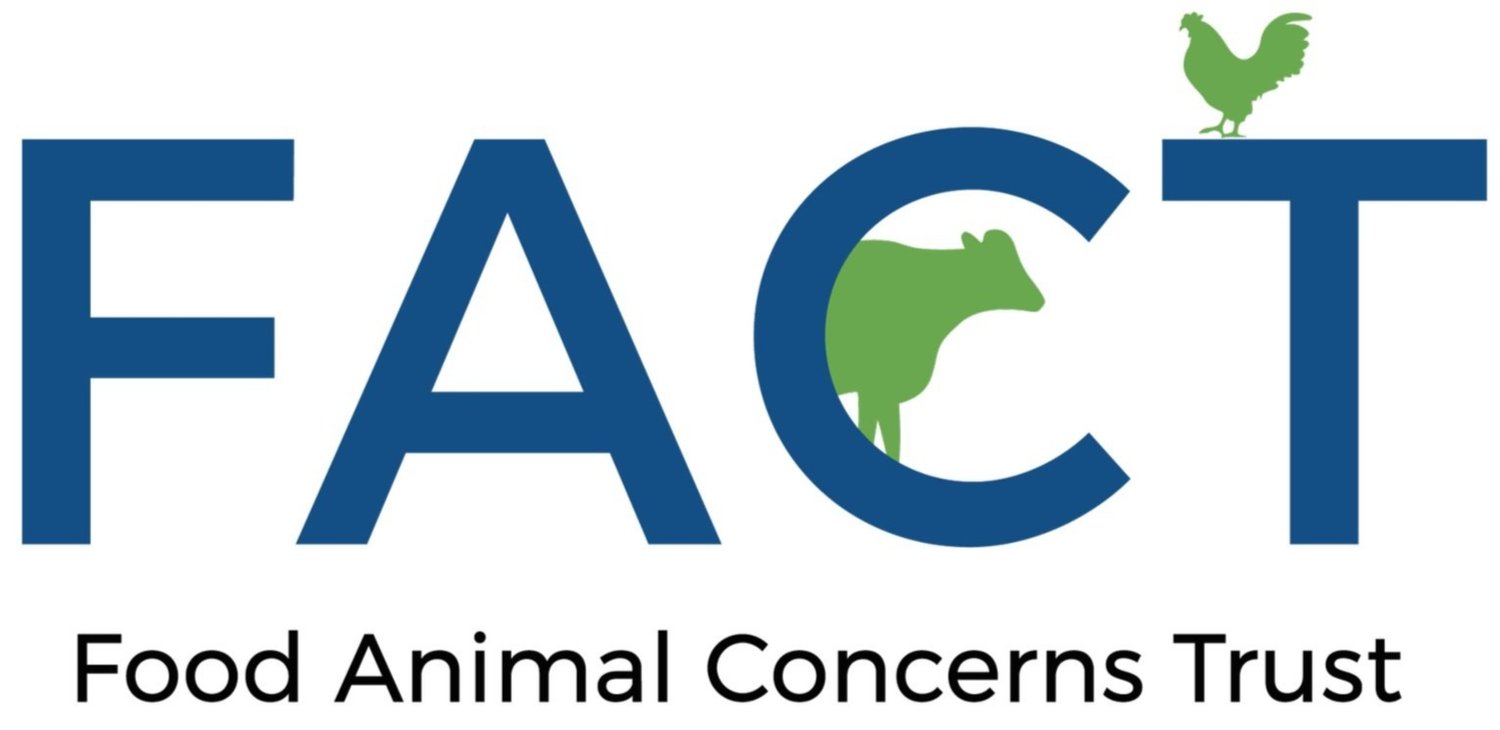Profiles in Conservation: Trouvaille Farm
Trouvaille Farm, or “Lucky Find Farm,” is just that: after years of working for other farms and searching for their own land, farmers Lindsay Klaunig and Michael Barnes finally found their 80-acre farm in Athens, Ohio. Located in the Southeast corner of the state, about 90 minutes outside of Columbus, the land is hilly, with highly erosive ridge tops and wet valleys that often flood. Because of this challenging topography, the farmers consciously and intentionally use a number of advanced conservation practices to steward the land on which they cultivate animals, bedding plants, and vegetable seeds.
To begin with, they use rotational, multi-species grazing to raise hearty breeds of beef cows, goats and chickens on their hilly pastures. This type of managed grazing system - where the animals are frequently moved - is critical to continuously improving the health of their pastures as it builds richer soil, sequesters carbon, and reduces erosion. The farmers take care not to overgraze so that enough vegetation remains and the land has time to rest and recover.
Lindsay and Michael also plant perennial and native varieties of grasses and forages, as well as cover crops so that the land is never exposed dirt but rather always has vegetation. Cover crops and compost help them keep their soil rich and avoid the need for synthetic fertilizer. To avoid using pesticides, they plant “insectaries” which are rows of flowering plants that attract beneficial insects that naturally keep pests under control. They leave wildlife corridors interspersed with grazed pastures to enhance habitat for birds and insects, and practice low or reduced tillage to keep roots growing in the soil. In addition, they have established silvopasture by incorporating trees into their grazing system.
This suite of practices has helped them balance the production necessaries that come with farming for a living with the natural aspects that are also necessary to keep their ecology healthy.
They’ve seen results. Due to the low till and cover cropping, the farmers have had better drainage in their terraced seed production garden, making it possible for them to extend their season and begin planting two weeks earlier than their neighbors. Silvopasture plantings of trees interspersed with pasture provides shade and winter protection to the animals, allowing them to graze year-round, through harsh summer heat and winter winds. Due to the practice of seeding nitrogen-fixing clovers into the pastures, forage yields are high without nitrogen fertilizer, again reducing costs and increasing productivity.
Climate change, extreme weather events and general unpredictability of the weather are top of mind for Lindsay and Michael every day. 2020 was one of the hottest and driest years on record for them. They’ve found that participating in federal programs such as the Environmental Quality Incentives Program (EQIP) and the Conservation Stewardship Program (CSP) have helped them build resilience and plan for the future.
With their EQIP cost share funds, they were able to install a wastewater treatment system for their milkhouse, which included the ability to capture rainwater for irrigation. The farm has also benefited from EQIP-funded perimeter fencing, paddock fencing, a high tunnel for seed crop production, as well as water points and hardened paths for their animals to walk on between pastures.
With their CSP funding they have been able to raise food producing perennials, perennial pollinators, and reseed with red clover. Clover is a legume and can “fix” nitrogen in the soil, serving to fertilize pasture plants without synthetic inputs.
Projects such as these help farmers create infrastructure and put systems in place that will provide a level of protection from extreme, unpredictable weather. Going forward, the farmers urge increased funding, flexibility and technical assistance for small and mid-sized farmers trying to access these important programs.
Investing in and supporting producers who are committed to using climate-smart conservation practices will help them stay in business and continue their good work.
Trouvaille Farm is a past FACT Fund-a-Farmer Grant recipient. Farmers Lindsay and Michael also serve as mentors in FACT’s Humane Farming Mentorship Program.
To help farms mitigate and adapt to the climate crisis, FACT supports the Agriculture Resilience Act (ARA). This farmer-driven, science-based bill calls for (1) increasing investment in agricultural research, (2) improving soil health, (3) supporting the transition to pasture-based livestock, (4) ensuring farmland preservation and viability, (5) promoting on-farm renewable energy, and (6) reducing food waste.


